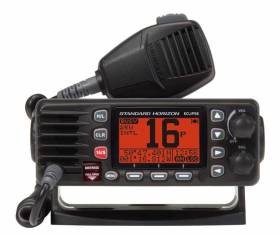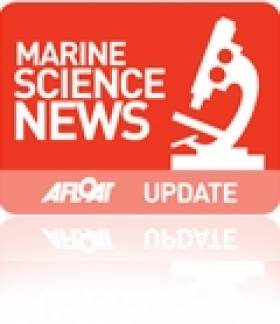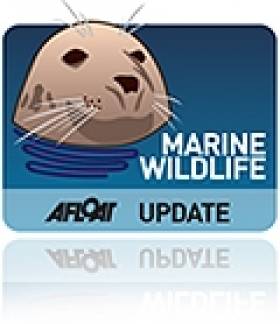Displaying items by tag: communication
Learn More About Safe Passage and Communication Course for All Leisure Craft Users in Dublin Bay and Port Area
The Irish Nautical Trust has provided Afloat.ie with more details about its Safe Passage and Communication Course for all users of leisure craft in the Dublin Bay and Dublin Port area, in conjunction with Dublin Port Company.
With up to 50 or more commercial ship movements per day, a figure that’s set to grow substantially in the future, it’s never been more crucial for leisure craft uses in the Dublin Bay and Dublin Port area to be aware of commercial traffic movements across the bay and inbound/outbound from the port.
The course, which is free of charge and takes approximately one hour, covers a number of topics that include:
- How and where to cross the shipping channel if your journey is for example from Dun Laoghaire to Howth or vice versa.
- The importance of calling the Vessel Traffic Service (VTS) on VHF Channel 12 when entering or exiting the port area. VTS is a marine traffic monitoring system based in Dublin Port (similar to air traffic control for aircraft) and is there for the safety of all marine traffic.
- Leisure craft users’ responsibility to call VTS on Channel 12 if they intend to navigate within the Port area, inbound or outbound (Poolbeg lighthouse to Poolbeg Marina).
- The passage line for leisure craft navigating inbound/outbound from Poolbeg lighthouse to Poolbeg Marina.
Remember the message that Dublin Port Company want to get out there to everyone is to “keep you, your crew and your vessel safe.”
The Irish Nautical Trust highly recommends that all clubs sign up to avail of this course. Currently it is not available for online delivery. However, the trust will gladly visit your club on a date that best suits your members. This will give everyone the opportunity to ask any questions they may have.
“We understand this is sailing/holiday time; however, we would still invite all clubs to contact us and at least sign up to the concept of the SPCC,” the trust says. “We can then arrange a time and date, maybe in the autumn, to roll the course out.”
Contact your home club or [email protected] for more information.
Safe Passage Communication Course for All Leisure Craft Users in Dublin Bay and Port Area
Dublin Port Company in conjunction with The Irish Nautical Trust are promoting a Safe Passage Communication Course for all users of leisure craft in the Dublin Bay and Dublin Port area.
Call VTS Channel 12 and contact your home club or [email protected] for more information.
Boaters and mariners have been reminded of the limitations of using mobile phones for emergency communication at sea.
Marine Notice No 40 of 2019 emphasises that mobile phones “should not be considered as a suitable substitute” for marine VHF equipment, which it urges all users of recreational craft to carry.
“Mobile phone coverage at sea is limited and unreliable. Mobile phones are also highly susceptible to failure due to water ingress,” the notice states.
The use of VHF, however, “makes it possible to broadcast to, and receive from, all vessels and coast stations within the vicinity in the event of an emergency”.
Where practicable, the Department of Transport, Tourism and Sport (DTTAS) says recreational craft should maintain a continuous listening watch on VHF channel 16 and DSC watch on VHF channel 70.
Further details are included in Marine Notice No 40 of 2019, a PDF of which is available to read or download HERE.
'Longest River' Hailed A Success In Brussels
#MarineScience - A unique audio-visual performance intended to communicate the importance of marine science and research has been praised at a showcase event in Brussels.
The Marine Institute has collaborated with Galway-based choir Cois Cladaigh on The Longest River, in which a selection of Latin and English choral music and traditional Irish pieces from the 9th century onwards are put to a photo slideshow depicting marine scenes and species, and video footage of extreme environment under the deep ocean.
According to the Marine Institute: "The unique collaboration has created an innovative means of engaging new audiences and raising the awareness of the science of our oceans and the importance of the deep seas that support our life on earth."
As previously reported on Afloat.ie, EU Fisheries Commissioner Maria Damanaki - a co-patron of the initiative - said The Longest River "demonstrates the importance of international collaborations on ocean research".
The marine science literacy and communication event, described as "an arts, music and science fusion", was presented to an audience of over 200 people as part of the celebration of Ireland’s Presidency of the Council of European Union at Eglise du Saint – Sacrement in Brussels.
The Longest River was also presented to over 100 primary school pupils at the Ecole Europeenne de Brussels IV in the Belgian capital. The children were introduced to Irish musicians Eugene Lambe and Kathleen Loughnane who spoke about the history of their instruments and played the Uillean pipe and Irish harp.
Dr Brendan O’Connor, director of Cois Cladaigh, also taught the pupils how to perform the Rondes by Folke Rabe, a contemporary performance extending the expression of vocal sounds that cannot be found in any language, yet are possible sounds inspired from deep within the ocean.
Supporting the Marine Institute and the development of The Longest River, Dr O’Connor said: “This event has enabled Cois Cladaigh to raise its profile amongst a wider audience as well as contribute to the ethos of evoking innovative arts and science literacy, offering better communication to a broad societal audience."
IWDG to Host European Cetacean Conference in Galway This March
#MARINE WILDLIFE - The Irish Whale and Dolphin Group (IWDG) will host the 26th annual European Cetacean Society Conference in Galway on the weekend of 24-25 March this year.
The Galway Bay Hotel will be the site for the main conference sessions, while workshops will also be held at the Galway-Mayo Institute of Technology (GMIT).
This year's gathering is being held under the theme 'Communication: Information and Ideas Worth Sharing'. Participants will be exploring communication between marine mammals as well as between marine scientists, and between scientists and the public.
As Ireland's Wildlife reports, the conference "offers a offers a great opportunity to find out more about whales and dolphins, their conservation, the cetacean research being carried out in Europe and to meet the researchers who are working to uncover the mysteries of these most enigmatic of creatures."
Registration is now open for the two-day event. For full details of the conference programme, venues and booking information, visit the European Cetacean Society Conference micro site HERE.
Titanic Belfast Bosses Want the ‘T Factor’ in Frontline Job Audtions
#TITANIC - Prospective employees at the soon-to-be-opened Titanic visitor centre in Belfast will have to show the ‘T factor’ and give a performance on aspect of the doomed ship’s story, The Irish Times reports.
It’s hoped by bosses at Titanic Belfast that the three-minute scripted ‘interpretative presentation’ - based on one of the centre’s nine galleries - will indicate those candidates with the requisite passion and communications skills for one of the 70 “frontline” jobs up for grabs.
“The audition day will give prospective employees a chance to let their true personalities shine through,” said Titanic Belfast chief executive Tim Husbands.
Titanic Belfast will be one of the largest employers in Northern Ireland’s tourism industry when it opens in March, as well as one of the North’s largest recruiters.
Among its many attractions, it will also bost the region’s largest function suite for conference, weddings and other events, as previously reported on Afloat.ie.
The Irish Times has more on the story HERE.



























































